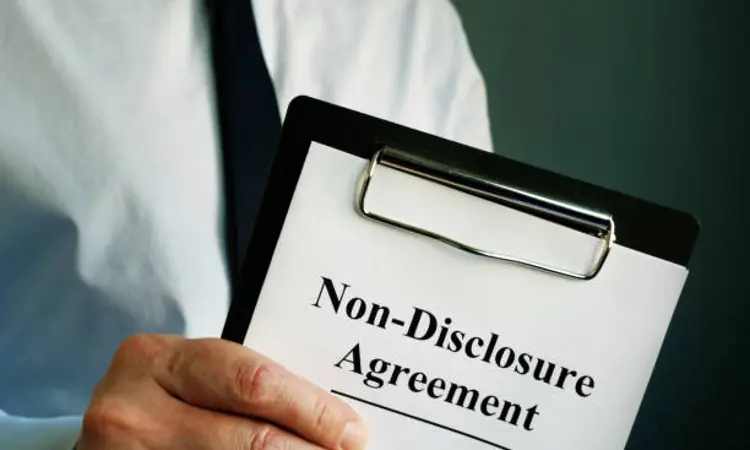Expert Guidance for a Successful Selling a Business In Perth, WA
The right advice can significantly impact the success and final value of your business sale. Our experienced team simplifies the complex process, guiding you through every step to ensure a smooth, stress-free experience.
Free Business Appraisal – No Obligation
Get in touch today for a complimentary appraisal. We'll assess your business and provide a recommended sale price based on current market conditions with no strings attached.

A Simple and Clear Selling a Business Journey
We follow a smooth 1-2-3-4 step process that helps our expert team understand you, your business, and your future goals. With our deep experience and industry knowledge, we’ll help you prepare and selling a business in the best possible way getting you the best value.
When’s the Right Time to Plan Your Exit?
There’s no fixed rule, but it’s never too early to start thinking about your exit plan. Even if you’re not planning to how do you selling your business right away, having a strategy in place helps you prepare for the future and can raise the final sale price of your business.
Here’s What to Think About When Planning Your Exit With OZ Advisory by Your Side:
- What kind of exit do you want sell it fully, hand it over to someone, or something else?
- How soon are you thinking of exiting right away or later down the line?
- What kind of deal do you expect, and at what price?
- Do you already have someone in your business who could take over?
What OZ Advisory Will Do for You
We’re here to help you make the right choices, at the right time. Our team will guide you step by step, so you feel confident, clear, and ready to make the most of your business sale.
Why Choose OZ Advisory
Selling my business can feel overwhelming but with OZ Advisory, you don’t have to do it alone. Our skilled team brings clear advice, real-world experience, and deep understanding of the market to help make the process simple, stress-free, and worthwhile.
1
Trusted Results
We've successfully helped many business owners make smooth and successful transitions.
2
Step-by-Step Support
From finding the right value to signing the final deal, we’re by your side through it all.
3
Get the Best Price
We work hard to make sure you get the full value your business deserves.
4
Your Privacy Matters
We treat your business information with care and complete confidentiality.
Consultation: Helping You Sell Your Business in Perth with Confidence
At OZ Advisory, we begin by understanding your unique goals and uncovering the true value of your business. Whether you're looking to selling your business or exploring options to sell my business, we’re here to guide you every step of the way. Our team crafts detailed, high-impact sales and marketing materials that showcase your strengths, financials, and market position giving potential buyers a transparent and compelling overview.
Privacy is paramount. If discretion is key to your decision to selling your business in Perth, rest assured we manage the entire process with strict confidentiality. Every prospect must sign comprehensive Non-Disclosure Agreements, and we make sure that your team, customers, and business relationships remain protected throughout your journey to sell my business with peace of mind.


Market Analysis: Finding the Right Buyers and the Right Fit
At OZ Advisory, we tap into a powerful network of over 150,000 active buyers and sellers to help connect you with serious prospects and make it easier to sell your business in Perth. Using smart data tools and one of the largest contact databases reaching over 5.3 million people worldwide we know exactly where to look for the right match.
Our specialist team also handles high-value deals with major international companies who are looking to expand into Australia through acquisitions. This gives your business a real chance to be seen by the right people fast and secure the best opportunity to selling your business at the right value.
We don’t just rely on tech; we also work closely with a wide group of trusted business professionals to make sure your business gets the attention it deserves. Using the high-quality sales materials we’ve created, we’ll make sure your business is showcased in the best possible way setting you up for a successful sale.

Smart Negotiation: Securing the Best Outcome When You Sell Your Business
When you're ready to sell your business or exploring options to sell my business, our negotiation strategy ensures you stay in control. As offers arrive, we keep you fully informed you’ll know exactly who’s interested, how each proposal is progressing, and receive clear, timely answers to your questions throughout the process.
Our skilled team takes a proactive approach, using experience and insight to maximise the return when you decide to sell your business in Perth, WA. Every serious offer is thoroughly vetted to ensure the buyer is financially prepared to close the deal. We negotiate from a position of strength, always focused on achieving the most favourable outcome for you.
Once the best offer is accepted, we draft a detailed Preliminary Agreement that lays out the deal’s structure, expected timeline, and key handover terms helping you step confidently into the next chapter after successfully choosing to sell my business.

Completion: Making the Final Steps Easy and Clear When You Sell My Business
At OZ Advisory, we make the final stage of your business sale smooth and stress-free whether you're working with existing advisors or need professional guidance to sell your business. We follow the terms of the Preliminary Agreement carefully and provide step-by-step support.
Our trusted legal partners simplify every step of the legal process no jargon, just clear communication to ensure everything aligns with your goals when you decide to sell my business.
Even after an offer is accepted, our team stays involved to ensure every detail flows smoothly. We’re committed to making sure the completion is timely, compliant, and hassle-free. With OZ Advisory, you're not just closing a deal you’re closing a meaningful chapter with confidence, care, and full support on your journey to sell your business.
BOOK A CONFIDENTIAL CHAT
Frequently Asked Questions
If you're thinking about selling a business, you probably have a few questions. Whether you want to selling your business now or just explore what it means to sell my business, you're not alone. Here are some common questions people ask and easy to understand answers to help guide you.
Successful negotiation starts with preparation and strategy. When you're focused on selling a business, our expert team helps you assess offers, understand buyer motivations, and negotiate from a position of strength. To sell your business for the best value, we create competition and keep your best interests front and centre throughout the process.
If discretion matters, we have you covered. We help you sell your business using anonymous marketing techniques that protect your identity and business relationships. Every potential buyer is screened and bound by Non-Disclosure Agreements, giving you peace of mind as you work to sell my business without unwanted exposure.
The time it takes to sell your business depends on factors like your industry, location, and how well the business is prepared. While some owners find a buyer within weeks, others take a few months. Our team helps streamline the process of selling a business to ensure speed without sacrificing value.
Preparing your business properly can make a big difference. When you're ready to sell my business, start by organizing financials, resolving issues, and highlighting your unique strengths. Clear documentation and responsiveness help attract serious buyers and support a smooth sale your business.
The Business Information Memorandum (BIM) is a detailed document that showcases your business—financials, operations, opportunities, and potential risks. It’s a vital part of selling a business professionally. When you sell your business, the BIM gives buyers clarity and confidence to proceed.
Before you begin selling a business, it’s important to:
- Update financial records
- Resolve legal or operational issues
- Prepare for buyer scrutiny
- Set clear goals
Whether you're thinking “how can I sell my business efficiently?” or planning to sell your business at a later date, smart preparation sets the foundation for success.
Your business’s value depends on its profit, market position, assets, and demand. When you're ready to sell my business, we help assess its worth through data-driven valuation methods. Understanding your business’s true value is essential for pricing it right and attracting serious offers when selling a business.